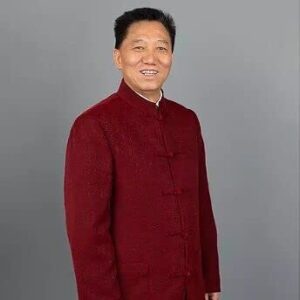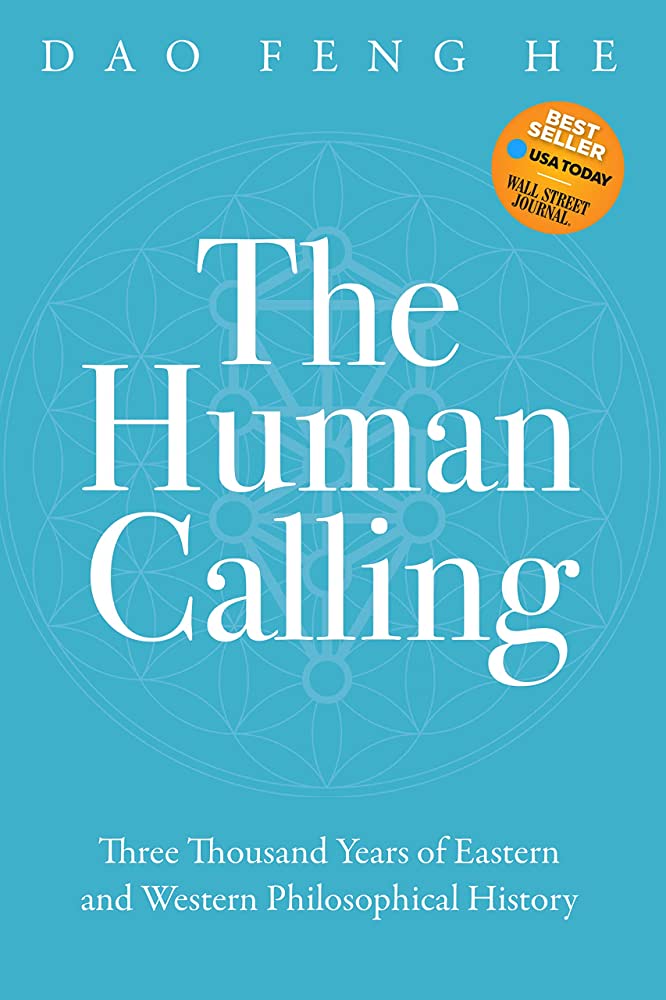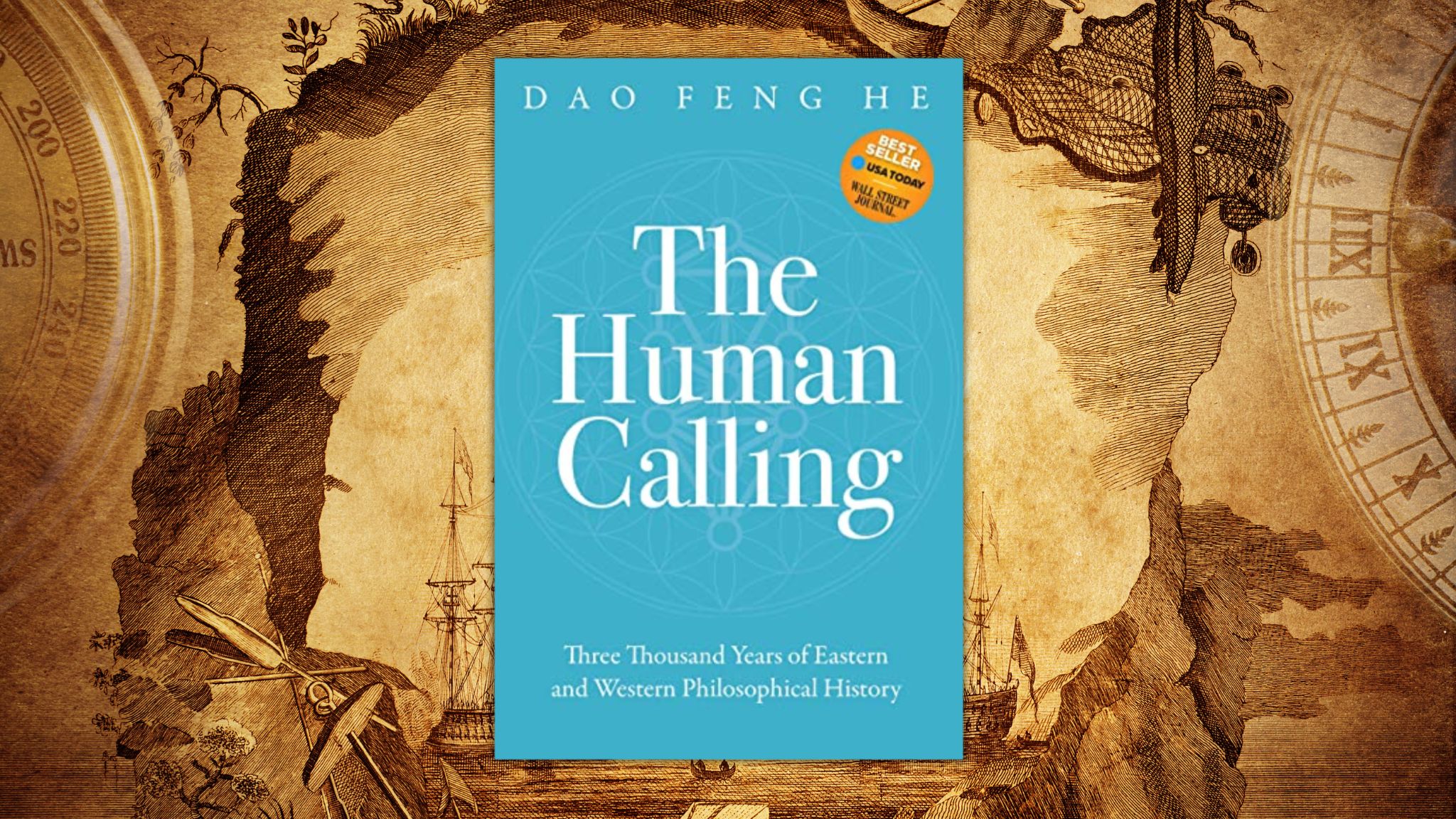The Human Calling by Daofeng He
“It is time to change the course of history, starting with the past.”
–The Dawn of Everything
Daofeng He’s The Human Calling is a sweeping and powerful account of the philosophical foundations of Eastern and Western Civilization, a bold and unapologetic Christian anthropology, a jeremiad against empty materialism and unbridled individualism, and a clarion call for the return to absolute truth and the moral grounding of faith.
It is a brilliant philosophical treatise, but also “an account of the long and difficult journey a Chinese atheist took to find God” told from a unique perspective and historical position. The aim of the book is nothing less than a “third great awakening” or deep reflection to reset humanity’s course away from the brink of annihilation back toward the human calling of “self-discipline, self-motivation, self-affirmation” found through faith in God. It is not an evangelical sermon designed to convert, but a masterful rational argument, supported with deep historical analysis, designed to convince.
The book is not aimed at specialists in philosophy, but rather written for an informed, open-minded audience. Still, the broad scope and depth of the book make it challenging for even the most intellectual reader, but the clarity and consistency of He’s argument reward the patient student with abundant insights and lucid explanations of complex ideas.
The thesis in broad strokes is strong and clear: mankind evolved in groups to make and create, transforming the environment through human ability. Conflicts arising between individual freedom and the communal benefit can be regulated through human duty (social ethics) and human requirement (state laws), but true, spiritual meaning in life is realized only through the “self-discipline, self-motivation, self-affirmation” that is human calling grounded in the absolute truth of God. This philosophical argument is supported through historical analysis covering three thousand years of human experience.
EPIC SCOPE AND PROFOUND DEPTH
The Human Calling’s epic scope and profound depth make it a veritable storehouse of compact short courses on a staggering range of topics, from pre-Socratic philosophy to medieval Catholic Apologists, to 19th century continental philosophy and American pragmatism, to the laws of thermodynamics, to a summary explanation of the 2008 financial crisis so pithy and convincing that it’s now on my list of required reading for my students.
The argument is also boldly revisionist; He asserts that the medieval church was neither corrupt nor dogmatic but rather gave birth to charitable organizations and universities; the Indian caste system was not the “dark side of Indian culture” that solidified political and social dominance, but rather a beneficial division of labor with Brahmins serving as a “spiritual paradigm” that held together tribal alliances; in the Western tradition there was no conflict between “faith and reason” and it was actually the quest for God’s natural law that drove scientific inquiry from within Christianity, not in opposition to it. These challenges to received wisdom (and more) are presented in a direct and intellectually stimulating manner. Even for those who might remain unconvinced, there is a lot to learn—and even more to think about—from reading this book.
China, not surprisingly, is a major focus of the book, and its disappointing history serves as the main foil for He’s championing of “Judeo-Christian civilization.” But his iconoclastic account sometimes verges on the lurid, and he holds Confucianism and imperial Confucian officials in particular contempt.
This revisionist stance takes issue with the new orthodoxy among world historians that China in fact dominated the Eurasian world from 600 to 1600 CE and made an early “breakthrough to modernity” based on Song-Ming Confucian rationalism and scientific worldview; indeed, some scholars go so far as to posit “the Eastern origins of Western civilization.”
In stark contrast, He argues that Neo-Confucianism had no “science” but only “technology,” no “dualism” or metaphysics, no sense of “natural law” but rather only relative truth and “dogmatic ethical codes.” Worse, He sees Confucian human ability as debased in the “slavish” service of imperial power, the ultimate sin of worshipping man as god.
Perhaps Daofeng He’s hypercritical assessment of Chinese history stems from his own bitter experience of it. Mao Zedong is nowhere mentioned in the text, but his dark presence looms in its depiction of despotic cruelty, and the deification (and base servitude) of officialdom reads like an account of the Chinese Communist Party.
A DEEPLY INFORMED WORK OF SCHOLARSHIP
Born in 1956, He grew up in the countryside. His earliest memories are of the Great Leap Forward famine, the worst in human history. His formal education was interrupted at age ten by the Cultural Revolution and did not resume until he was twenty-one. Like many of his intellectual peers, He was likely self-taught, with a resulting polymath perspective that led him to question the revolution.
He came of age during the heady and hopeful “reform and opening” period of the 1980s, with its “Culture Fever” critiques of the “vacuum of values” and “crisis of belief,” only to suffer the crushing disappointment of the Tiananmen Massacre of 1989. These experiences no doubt shape not only Daofeng He’s critical assessment of China’s history, but also his deep skepticism of state intervention in competitive market systems and, above all, his call for absolute truth as forceful response to Mao’s “great lie.”
While The Human Calling is a profoundly conservative Christian manifesto addressing an age of impending crisis, it is at heart a deeply informed work of scholarship. Any “liberal” social critic could agree with many of the points raised and all readers will be moved by He’s passionate empathy and defense of charitable welfare. Daofeng He fundamentally advocates a peaceful vision of tolerance and rationality, an appeal to our better angels of charity, and a return to firm moral grounding—a humane response to the human calling.
About the Author:

An entrepreneur, economist, philanthropist, and policy researcher, Daofeng He was born in Yunnan, a rural province in southwest China, and currently resides in Bethesda, MD. In the US, Mr. He has appeared on CBS, and Fox News and the podcast “Veteran’s and Community Healthy” by Sunday Magazine (WMAL 105.9 FM) to discuss his COVID-19 rescue efforts, which he described as asking God’s calling to help fellow Americans. Through his Maryland-based family foundation, he launched the Life Preservation Initiative (LPI) in March 2020 to donate 1,000,000 sets of PPE to frontline healthcare workers and vulnerable communities in the fight against COVID-19. Under Mr. He’s leadership, the LPI collaborated with Christian organizations such as the Salvation Army, Bowery Mission, and the Catholic Diocese of Brooklyn. The LPI and Mr. He have been covered in 23 press outlets including NBC, ABC, and New Evangelization Television. In 1994, Mr. He founded the Human Resources Development Center of Western China to work with the World Bank to increase labor mobility from inland rural areas to developed coastal areas in China. This project successfully resettled 600,000 workers from impoverished counties and reskilled them to perform factory jobs or find other employment. He then went on to chair many successful business endeavors. In 1999, while chairman of Huaxia West Company, he decided to additionally serve as acting president of the China Foundation for Poverty Alleviation (CFPA), refusing a salary. Leading an NGO independently of the government came with significant political risks, but Mr. He was determined to see social reform come to China and took many measures to protect CFPA’s work. Mr. He has been published extensively in China. In 2019, Mr. He received the President’s Volunteer Service Award from the White House for his outstanding service to fellow Americans and those most in need. The same year, Mr. He received three more awards, including the United Nations NGO/Department of Public Information’s Outstanding Achievement Award for International Alleviation, the Global Outstanding Social Entrepreneur Award at the Global Corporate Social Responsibility Summit in New York, and the International Leadership Foundation’s Leadership Award in Washington, DC.




